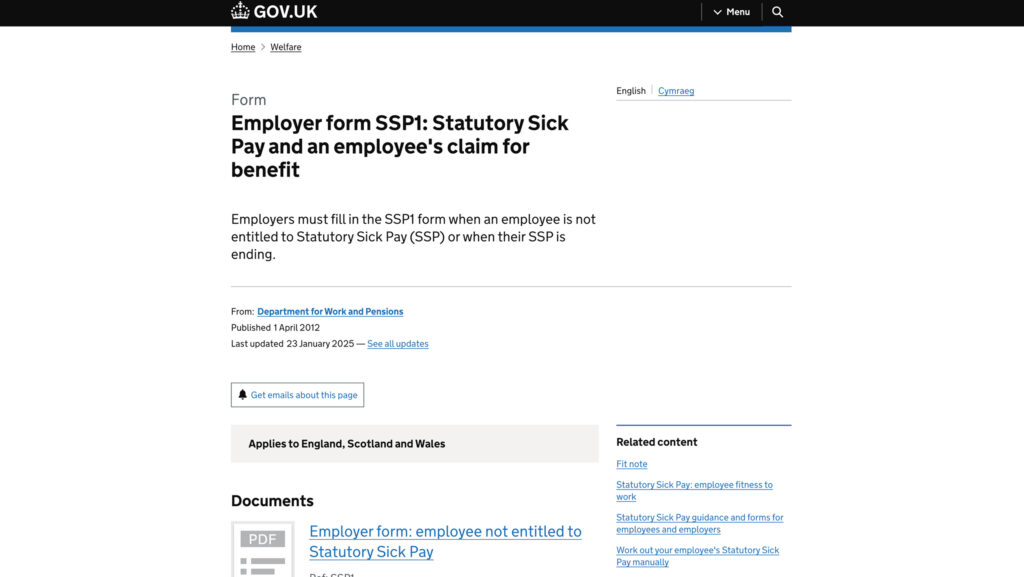How the Employment Rights Bill will affect farm businesses
 © Tim Scrivener
© Tim Scrivener Farmworkers currently have the right to submit a flexible working request from their first day in the job. Proposals in the government’s Employment Rights Bill will make it more difficult for their employer to refuse.
In addition, if restrictions to zero-hours contracts go ahead, businesses relying on flexible and seasonal labour will need to find ways to offer more stable employment terms, says employment specialist Oliver McCann.
Complying with the raft of new regulations – which could come into force as early as April 2026 but no later than October 2026 – will mean less flexibility, greater risks, and more administration for farm employers, resulting in higher costs, he warns.
See also: How to manage staff with drug and alcohol issues
“They will need to have all their ducks in a row and take advice when it is needed,” says Oliver, of AfterAthena, which works with the agricultural sector and is part of law firm Napthens.
The bill is wide-ranging – here we look at some of the key proposals farmers will need to consider.
Day one rights for unfair dismissal
With challenges in recruiting and retaining agricultural workers, it is inevitable that sometimes a staff member is taken on who may turn out not be up to the job.
Under current legislation, if that proves to be the case, the employment can be terminated within the first two years of the contract without risking an unfair dismissal claim.
The Employment Rights Bill seeks to protect workers from being dismissed unfairly by applying unfair dismissal rights on the first day in employment.

© GNP
“It will reduce the agility of an employer to move quickly if an employee is not up to standard,” says Oliver.
It looks likely that there will be a probationary period though, during which an employee can be lawfully dismissed, of possibly up to nine months, although the time scale is yet to be set.
Farming businesses will need to have processes and policies in place to manage employees in that probationary period and build up evidence if the worker is not meeting the standards required, before going through a formal process of dismissing them, Oliver advises.
“There is a greater risk for farmers if they don’t implement procedures to manage the probation period well enough.
“We do see farmers falling short on that now by keeping workers on for several months despite them not being up to scratch and then dismissing them without ever giving the employee a reasonable indication that they weren’t delivering.”

© Tim Scrivener
Worker performance should be regularly reviewed in the probationary period and, if employees are under-performing, they should be advised where they are falling short, given an opportunity to improve and this should be put in writing, says Oliver.
If performance continues to fail, the employer will have documented evidence to support their conclusion that the worker has failed the probationary period, and to cite this as their sole reason for dismissal.
Key in this process will be determining if the grounds for failing probation are justified, says Oliver.
“It can become complex where a worker relies on health issues as the reason for the impact on performance.”
Even when the proper process has been followed, the worker can still assert that their dismissal was for another reason and therefore unfair.
“The devil will be in the detail. I think we will see more claims pursued by employees under the new legislation,” says Oliver.
Limitations on zero-hours contracts
Farming’s reliance on casual workers to accommodate fluctuating seasonal requirements such as at harvest, lambing, or during calving will also be affected by the legislation.
Zero-hours contracts give that flexibility, but the government sees them as exploitative because they don’t give workers the ability to plan and have income level certainty from one week to the next.
The bill seeks to restrict the use of these and proposes that workers on zero- or low-hours contracts will have the right to a guaranteed-hours contract if they work regular hours over a defined period.
Right to request flexible working
The right to request flexible working from day one already exists, with eight statutory grounds employers can give for refusing.
Two or three of these are typically relied upon, such as an inability to fill the gap created by the reduced hours, or the detrimental impact flexible working would have on business performance or meeting customer demand, says Oliver.
Accommodating flexible working is challenging in agriculture because of the nature of the work. The bill proposes to set a higher bar that employers must reach to reasonably decline such a request.
Fee payable for shifts cancelled
There is also a proposal for workers to be paid a “cancellation payment” if shifts are withdrawn at short notice.
Rejigging shifts is not uncommon in farming, for example when a worker might do 20 hours one week but be asked to do 40 or more the next week when the plan is to harvest crops, only for poor weather to force a change of plan.
Under the proposals, if proper notice isn’t given the employer would need to pay the worker compensation for the hours promised but not worked.
“Employers will need to provide reasonable notice for shift cancellations or changes, and pay workers for shifts cancelled without proper notice, which will require better operational planning and communication,” says Oliver.
The number of days’ notice to be given is yet to be determined, but as it is likely to be several days it won’t suit weather-dependent jobs common in agriculture that often require decisions to be made a short notice, says Oliver.
“This proposal and others will make it more difficult for businesses to be nimble.”
Changes to statutory sick pay

© Crown Copyright
Changes to statutory sick pay (SSP) are likely to increase labour costs for farm employers.
Currently, employees must be off work for three consecutive days before there is an entitlement to SSP. The bill proposes to make SSP payable from day one.
Oliver recommends employers have procedures in place to monitor the number of absences and to set a threshold on days absent before action is taken.
If a pattern of a worker calling in sick is apparent, or what is deemed to be an unacceptable number of sickness days are taken, the business can manage this accordingly through an attendance management process with the aim of improving attendance, failing which employment may end.
An attendance policy should be implemented providing a fair and consistent approach to attendance issues, but which ensures that after a certain absence or number of absences, a review is held with the employee to discuss the absence, says Oliver.
After this the employer can put in place a process to try to help the employee improve their attendance.
“If you have nothing in place this makes it difficult to manage the situation. It’s also important to be consistent in applying the policy to all employees, reducing the risks of differential treatment giving rise to discrimination allegations.”
The government also seeks to reduce the lower earnings limit of £123 a week, which is the amount a worker must earn to be eligible for SSP.
Dismissal protection
The bill lays the foundation for enhanced protection against dismissal during pregnancy and for six months upon return from maternity leave which means dismissal will be unlawful except in specific circumstances, yet to be clarified.
Ban on ‘firing and rehiring’
Employers will not be able to fire staff and rehire them under less favourable terms, unless there are exceptional financial circumstances which mean they need to find other ways to manage labour costs and contract terms.
Oliver says it is understood that the government’s expectation is that an employer would only be able to “fire and rehire” when the future viability of the business is in doubt and that the change is necessary to prevent this.
“What it seems to infer is that this will apply where a business is in financial crisis – but how will that be assessed?
“It may be that a business is not currently in a financial crisis but will be if it carries on with the current contractual terms in the medium to long term – so how will that need to be proven?”
“Employers will need to build in flexibility clauses in their employment contracts to give them the right to make such changes but these will need careful drafting, advises Oliver.
Employee handbook for policies
Any employer should have an employee handbook setting out all relevant policies to the worker’s employment, including an attendance management policy.
Employers are advised not to include policies in the contract otherwise a contractual procedure is created as opposed to a policy which can be flexed.
